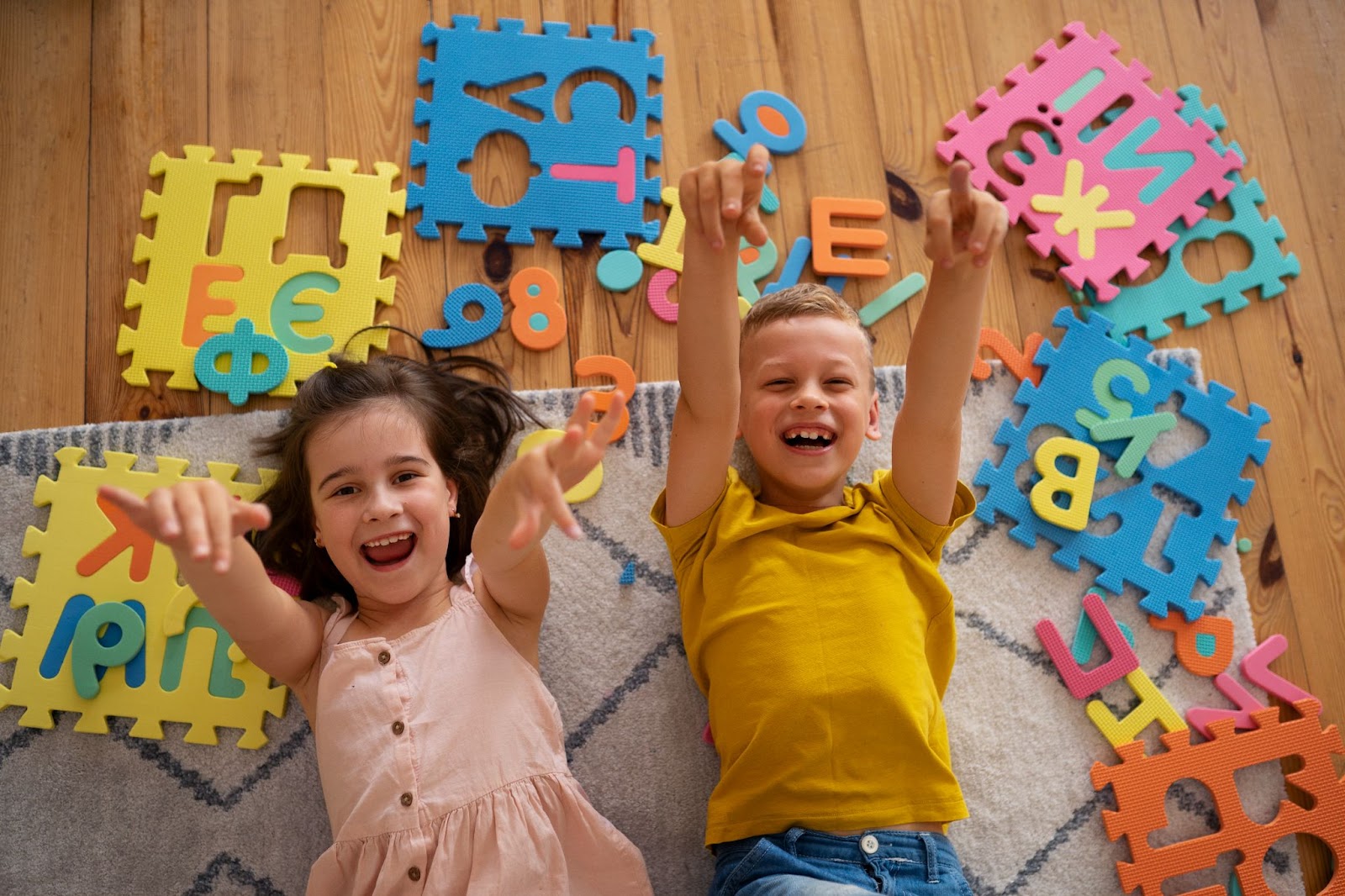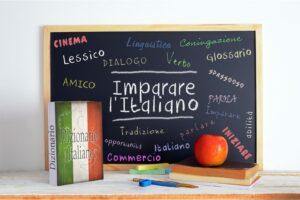
In today’s interconnected world being able to communicate in languages is a valuable skill. Montessori language immersion programs specifically designed for children offer an effective way to nurture minds and prepare them for a future where being multilingual is a significant advantage.
This article delves into the idea of fostering learners through Montessori language immersion with a focus on teaching two of the most widely spoken languages in the world. Mandarin and Spanish.
The Montessori Approach: Building Blocks for Language Immersion
The Montessori method is well known for its child centered approach, to education, which prioritizes self directed learning and hands-on exploration.
This philosophy seamlessly aligns with language immersion allowing children to naturally immerse themselves in both the language and culture just as they do with their tongue.
By infusing Montessori principles into our language immersion programs, children not only develop language fluency but also enjoy the learning process. Experience this unique approach at BeiBei Amigos, where we seamlessly integrate Montessori and traditional education.
The Advantages of Montessori Language Immersion
Early Bilingualism
Montessori language immersion programs provide children with a chance to become bilingual from an age. When children are young their minds are incredibly receptive, to learning languages.
By immersing them in experiences that involve languages they can develop the ability to understand, speak, read and write in more than one language simultaneously. This early exposure to bilingualism brings benefits on social levels.
Cognitive Benefits
Research has proven that being bilingual gives children advantages. It boosts their problem solving skills, creativity and the ability to switch tasks seamlessly.
By introducing Mandarin and Spanish through Montessori immersion we help children build a toolkit that will benefit them throughout their lives.
Enhanced Cultural Awareness
Language is deeply connected with culture. Through immersing children in Mandarin and Spanish languages we expose them to traditions, history and customs associated with these languages.
This cultural exposure nurtures a mindedness and global awareness that prepares children to engage with communities and cultures.
Improved Communication Skills
Learning a second language enhances communication skills by enabling children to express themselves in contexts and, with various individuals.
Montessori language immersion does not encourages fluency in Mandarin and Spanish. Also strengthens communication skills in their native language.
The Montessori Language Immersion Experience
Child Centered Learning Approach
At the core of the Montessori approach lies child centered learning. When it comes to language immersion it means that kids get involved with the language through playtime exploring and real life experiences.
Montessori classrooms have materials that help children learn languages by letting them discover, handle and practice the languages at their speed.
Engaging All Senses
Montessori education embraces a sensory approach, to learning, which is especially effective for acquiring language. Kids are encouraged to use all their senses.
Seeing, hearing, touching and even tasting. To connect with the language. This hands on method improves understanding and memory retention.
Native Speaking Teachers
In Montessori language immersion programs speaking teachers play a role. These educators create a language environment.
Expose children to correct pronunciation, intonation and cultural nuances. By interacting with speakers kids gain confidence and fluency.
Learning Through Play
Play is a part of childhood development and also a key aspect of Montessori’s approach to language immersion.
Children take part in games related to languages sing songs in languages and engage in activities that make learning languages a joyful and natural experience. This playful approach keeps children motivated to engage with the language.
Individual Progress at One’s Own Pace
Montessori immersion programs recognize that every child is unique and progresses at their pace. This approach encourages children to develop a sense of independence and autonomy when learning languages.
It allows them to explore languages and progress at their pace ensuring that the learning experience is positive and fulfilling.
The Path to Fluency: Mandarin and Spanish
Two of the world’s spoken languages are Mandarin Chinese and Spanish. With over a billion native speakers combined these languages offer opportunities for communication, business interactions and cultural exchanges.
By immersing children in Mandarin and Spanish we open up a world of possibilities.
Mandarin: The Language of Business
Mandarin is not the commonly spoken language globally but also plays a crucial role in the business landscape. As China’s economic influence continues to grow being proficient in Mandarin becomes increasingly important for professionals.
Montessori language immersion equips children with the skills they need to thrive in this globalized job market.
Spanish: Building Bridges across the Americas
Spanish is not limited to Spain, it is also widely spoken throughout the Americas.
With its history and cultural diversity mastering Spanish becomes essential for understanding and connecting with Spanish speaking communities, around the world.
Language Skills That Last a Lifetime
The language skills acquired through Montessori immersion programs extend beyond the walls of classrooms.
Children who have exposure, to Mandarin and Spanish tend to retain their language skills throughout their lives, which brings them benefits in terms of travel, career prospects and personal relationships.
Preparing for a Global Future
Nurturing Global Citizens
Montessori language immersion goes beyond teaching languages, it molds the minds of citizens. It imparts values such as empathy, tolerance and cultural appreciation.
Children who grow up in Montessori immersion programs are well equipped to engage with an interconnected world.
An Edge in Education
Being multilingual is an advantage in education. It enhances performance boosts abilities and opens doors for further language studies.
Montessori language immersion sets children on a path towards success in their journey.
Career Opportunities
In today’s job market having proficiency in Mandarin and Spanish can be highly advantageous. Many businesses value employees communicating in languages while international companies often seek bilingual professionals.
Montessori immersion graduates are aptly positioned to seize these career opportunities.
A Lifelong Passion for Learning
The Montessori approach inspires a love for learning that extends well beyond acquiring languages.
It fosters curiosity, adaptability and openness to experiences, among children—making them enthusiastic lifelong learners. This enthusiasm, for acquiring knowledge is an asset in today’s evolving society.
Conclusion: Fostering Global Learners
The Montessori language immersion program for children offers a journey that provides them with the skills and mindset to thrive in our interconnected world.
This approach not only helps children become fluent in Mandarin and Spanish but fosters cognitive, cultural and social advantages that will greatly benefit them throughout their lives.
As we navigate the complexities of a society investing in the cultivation of learners through Montessori language immersion ensures a brighter future, for our children and the world they will shape.






